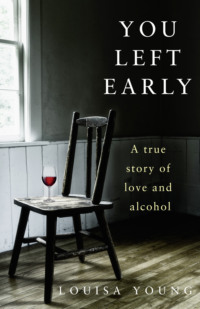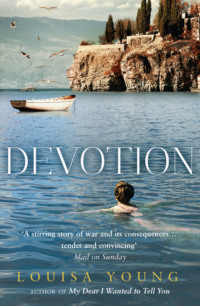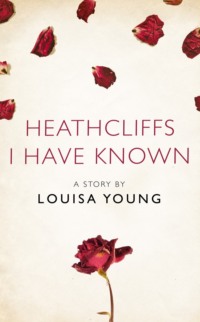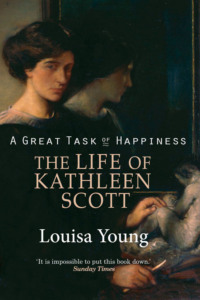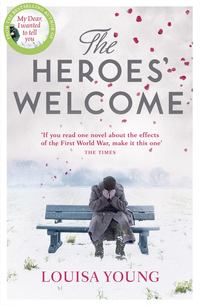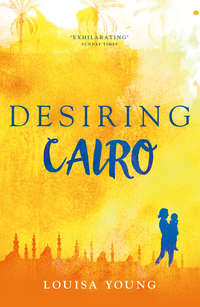
Полная версия
My Dear I Wanted to Tell You
Riley reached forward to help himself to another bun, and then lay back in his chair, arranging his legs in a stylishly negligent fashion. Sometimes he completely understood his mother’s view of the posh. I am, after all, as it were, working class. I should, no doubt, after all, bally well accept that I am, after all, as it were, working class.
Ah, but I fucking well don’t accept . . .
Am I perhaps developing anarchist leanings?
Would Nadine want a man with anarchist leanings?
I know she cares about me.
The rain battered the windows.
‘You might as well stay for supper, you know,’ Terence continued. ‘Such a filthy night. Probably clear up later. Mrs Jones will bring up a stew and dumplings in a while. There’ll be plenty to go round – she’s good that way.’ Riley was glad to hear that people of his type were capable of generosity as well as sensitivity. Oh, stop it. Terence is all right. It’s not him you’re angry with.
‘People are saying it’s awfully romantic and noble,’ Terence was going on, ‘to fight for your country, for something you really believe in, and it is, of course it is . . . but of course the real joy and breakthrough of the romantic movement was that it means it’s no longer necessary to be hidebound by the rules of classicism, and tradition, which means, it seems to me, that all rules are there to be questioned, and all kinds of behaviour should now be considered on their own merits, not simply in the light of traditional rules and models . . .’
Riley took one of Terence’s cigars, and said: ‘I’ve always thought that one should do exactly what one wants, as long as it doesn’t hurt people.’ At this Terence smiled his very wide blond smile, and pressed Riley to another glass of smoky red wine, which Riley accepted. Hark at me! One!
‘The problem is, it does hurt people,’ he went on. ‘There’s always someone who is going to be hurt by one not doing what they want. Or by one doing what they don’t want one to do, like—’ and he had had no intention of using this example, but it leapt out, as the things uppermost in our minds tend to, unexpectedly and unwelcomely ‘—loving someone they don’t want you to love . . .’
Terence understood completely. Riley was glad to be understood. His fury and hurt about Nadine’s removal were beginning to surge and shovel around inside him now, fuelled no doubt by the wine, so he accepted another glass, as a result of which he accepted some whisky – quite a lot – as a result of which he found himself an hour or so later spreadeagled across a green chenille blanket on Terence’s single bed with Terence’s mouth around his tumescent dick.
He liked it. Oh, God, it was magnificent, the wonderful warmth, and surging . . .
At least, his dick liked it. His dick absolutely loved it.
Riley lurched from the bed, pushing the blond head aside. Terence called out to him but already Riley was staggering like a clown in his falling-down trousers; with his shirt-tails flying he was down the many flights of whirling stairs, out into the storm, hurtling up Exhibition Road, making distance, his heart battering, his chest tight, clambering the black railings into the park. He flung himself breathless on the turf on his back. The rain was pouring down, punching his face.
A big girl’s blouse, a posh man’s plaything with a fake posh accent, nancy boy to a nancy posh artist in nancy fucking Kensington smoking fucking cigars. Sensitivity, my arse. Artistic temperament and fucking sensitivity.
Fucking posh fucking
But they’re not all . . . said a sane little voice beneath his fury.
Was it all based on that? Bloody Terence – and Sir Alfred? He’d never even noticed Sir Alfred wasn’t married – it had never . . .
Nadine –
Nadine . . .
Bloody Waveneys, bloody bloody posh bastards all the fucking same.
Not good enough for their girl, only fit to be used by their boy.
I should just go round there and . . .
Fury was consuming him. The first person – other than himself – to touch it had been a man. The first time he came off – other than by his own hand – a man. A man he liked. A coming off he liked.
Do I go to hell now? To prison, certainly, if anybody found out. Or I’ve got some horrible disease . . .
And now he would have to lie to her all his life.
What life? What life, exactly, was he imagining anyway? How could he imagine any life with her? How would that ever come to be? Nadine will spend her life with a gentleman. You are not a gentleman. It’s been made perfectly clear.
Maybe, but I’m not like Terence either . . .
Yes, you are. You did it, you liked it – you’re one of them. You always said you didn’t mind what people did but look at you now . . . You’re ashamed because you’re one of them.
I’m ashamed because I’m not one of them. If I was I wouldn’t mind . . .
Really?
I’d be up there still with Terence . . . well, maybe not Terence . . .
Oh? Who, then? What handsome man do you yearn for?
Nobody! Nobody! My mother was right, they just want something from you . . .
He lay until the rain was pooling in his coat, his limbs gradually seizing up with the cold and the wet. Finally he rolled over and slept a little in the short light night, his nose in the short brown and ivory-white stalks of the cropped grass.
Within hours the day dawned, cool and clear. He scraped himself up, brushing the grass from his coat and trousers, tucking in his shirt, rubbing at his face as if that would make it look better. He didn’t want to go up to Bayswater Road, or to Orme Square. He didn’t want to run into anyone. He didn’t know what to do. He had been out all night – Sir Alfred . . . Mrs Briggs . . . what could he say to them? What are you meant to say?
He walked the other way, trying to ease his stiff legs, down towards High Street Kensington. Kensington Palace looked beautiful, floating on the morning mist, illuminated as if from within by the early sun, and the statue of Victoria – the Bun Penny – glowed like a pearl. This is how Terence should have painted it, he thought. Damn Terence.
He stopped in at the Lyons Tea House, and ordered tea. He stared at the thick white cup until the waitress suggested he buy another or move on, would you, because there’s others need the table, and then buying another, and another. I should go to Sir Alfred’s, he thought. Apologise, at least, for staying out, even though I can’t explain. He’ll think the worse of me . . . but then I think the worse of him . . .
Oh, it’s not his fault.
I should go home, he thought. But he knew he wasn’t going home. What – talk to Mum about it? Or Dad? This was not a situation a young man took home.
Where does a young man take this situation? he thought, and he laughed, a sleepless, angry, hungry, lonely, embarrassed, humiliated laugh. He knew perfectly well where this was leading. It was inexorable.
His seventh cup of tea stood cold in front of him.
*
He was still damp through from the park when he went up to the recruiting station. He had calmed down a little, but not much. He was going to do it. He bloody was. With him gone, Nadine could go back to Sir Alfred’s. He’d prove himself a man, in the army. Hard work. Proper work. No nancy stuff – no art. Make Nadine proud. Or knock her out of his system.
‘Here I am,’ he said to the recruiting sergeant. ‘You can have me.’ He gave him a big grin. Change. Big and total change.
You only had to be five foot five now. He was sent in the back to be looked at. He stripped off and flung his shoulders back, coughing in the cold back room while another posh man held his balls. Was he eyeing him up? Stop it, Riley, they’re not all like that. Next behind him was a tough and scrawny Cockney youth who said, apropos the balls situation: ‘They’ve always got you by the bollocks one way or another, ain’t they? The women and the money and the fuckin’ upper classes . . .’
Riley grinned again. Here we go. That’s more like it.
He went next door to fill in forms. Name, address (he put Sir Alfred’s); next of kin (Mum and Dad); DoB (26 March 1896), height and weight (5 ft 9 ins, 10 st 11 lbs), eyes hair complexion (grey black pale). Wages – half to Mum and Dad. Regiment: no idea – you tell me. Length of service: one year or duration of war. Duration of war, of course. He didn’t want to spend a whole year in the army.
*
Riley had one day before reporting for training. They wanted to get them out there quickly.
Mum and Dad, Sir Alfred, Nadine.
He went round to his parents’ that night. He stood in the street by the front door, and he leant against it, and he recalled his mother’s face when she talked about her dad, and abroad, and the first wave of soldier’s cowardice came over him. He did not want to see her look like that at him. She’d think she was losing him. (Riley hadn’t noticed that she already knew she had already lost him, not to the Hun or the army, but to people who spoke nice, and knew the point of things of which she had never heard.)
He peeled himself off the door and ran up Praed Street towards the Waveneys’.
He looked up at the windows. The drawing-room lights were off, upstairs’ were on. It’s too late to call now.
He thought of Nadine in her nightgown, brushing her Mesopotamian hair. He thought of the curve of her waist under his hand, and he ran across the road, back over the railings into the park, and he hardly had to touch himself to the thought of all the parts of her before he came.
Oh, God, I am so . . .
He didn’t fall for the one that it made you go blind, and the palms of your hands hairy. But it was hardly . . . Still, no signs of disease yet. How would it show?
Oh, God, how can I even think of her? That clean and beautiful girl?
Her parents are right, Sir Alfred is right. A good marriage, not to me. Leave her alone, Riley. Know your place. If she likes you (she likes me), all the more reason to leave her be.
He wiped his hands on the grass, and on his trousers, and walked on up to Sir Alfred’s. Mrs Briggs opened the door – and fell on him, hugging and scolding. Messalina stood behind, and crooned at the sight of him.
‘I’ve joined up, Mrs Briggs,’ he said.
She fell away from him, saying: ‘Oh dear me. Oh dear me, Oh, you good brave boy.’ And she ran, almost, her skirts swaying, to call for Sir Alfred.
‘I’ve joined up, Sir Alfred,’ he called, one hand on the dog’s head, as the old man was still on the stairs, coming down through the dim light, one hand on the polished banisters. ‘I hope you don’t mind . . .’ It sounded so pathetic. But he did hope Sir Alfred didn’t mind. He was aware he was being precipitous.
Sir Alfred emerged into the light of the hallway. ‘No,’ he said mildly. ‘No, I’m . . . proud of you.’
Mrs Briggs was crying, and talking about underwear. Mrs Briggs had no children of her own.
Sir Alfred took Riley by the hand, and held it firm. ‘Congratulations, Riley,’ he said. ‘When do you leave?’
‘Tomorrow, for training,’ Riley replied, conscious of remnant spunkiness. I’ve lived six years in this house, with these two, he thought. One third of my life.
‘Mrs Briggs, give him something nice for dinner,’ Sir Alfred said. ‘And, Riley, come up and say goodbye in the morning.’
‘I’ll lay out your studio, sir, before I go,’ said Riley. ‘And I’m sorry about last night and today, sir . . . and what we were talking about.’ He felt suddenly and desperately sad.
‘Well,’ said the old man. ‘Well. Just as well. I know these are big decisions.’
‘Yes, sir,’ Riley said. He was proud of that.
*
The next morning he went early to the Waveneys’ house.
He couldn’t go in. He couldn’t do it. Be sneered at by those people he had thought liked him.
He stood across the road, under the trees of the park, by the bus stop. He didn’t have long, if he was to drop off the letter at his parents’ house, and be in time to report at the station.
He prayed for her to come out.
Go to the door, you fool!
He couldn’t.
His legs did it without him – hurtled him across the road, up the path to the door. Quick and fumbling, he started to stuff the letter he had written the night before through the letterbox – and the door moved before his hand. Opened. Jacqueline – Mrs Waveney – stood there.
‘Oh, hello, Riley,’ she said, her head drawn up and back on its long neck, and he looked at her and saw that he had understood the situation perfectly.
He shoved the letter at her, and he said, ‘There’s no need to worry, Mrs Waveney. I’ve joined up. If you’re lucky, I’ll get killed. Nothing to worry about then, eh?’
He grinned at her boldly, then turned and sauntered away. That’s done it. If I ever could of, I couldn’t ever now.
Could have, Riley.
He posted the letter to his parents as there wasn’t time to get up there.
*
Dear Nat,
I’ve gone to join in the war. I am taking a Tale of Two Cities with me to put me in the mood for France and fighting but I don’t know if there will be much reading. I’ll write to you again.
With love from your foolish boy
Riley Purefoy
He didn’t put, when I’m a soldier back from the war I’ll be a proper man, not the type to enjoy the touch of another man after four tots of whisky.
He didn’t know you weren’t meant to put ‘love’.
*
Dear Mum and Dad,
I’ve been thinking and I think you are right about art being a bit nancy, so I am joining the army and will be in France soon, Doing my Bit as they say in the papers. I am sorry not to say goodbye but they are sending us off for training (I think I am going to need quite a lot of that) immediately so there’s no time really. Tell the little ’uns they had better be good while I’m gone and I’ll bring you back something nice from France for Christmas, from your very loving son who hopes you’ll be proud of him, yours faithfully, Riley Purefoy
Now is it ‘faithfully’ or ‘sincerely’? Sir Alfred had told him once – ‘faithfully’ if you’re using the name, ‘sincerely’ if you’re saying ‘Dear Sir’. . . or is it the other way around?
He couldn’t remember. He put ‘yours faithfully’, because he felt more faithful than sincere.
Chapter Four
Flanders, October 1914
‘Where are we, then?’ Purefoy asked Ainsworth, as they clambered off the train.
‘Not a fucking clue, son,’ said Ainsworth. Ainsworth was from Lancashire, not a big man, steady. He was older. He had a wife and kids at home, and if you pressed him, which Purefoy had, once, he’d admit that he’d joined up because it seemed the right thing to do. He didn’t say it in a tough way. He built railway carriages for a living and had been sent to the wrong regiment by clerical error. He didn’t mind. Purefoy liked him. He liked his moustache, his accent, his deep voice, and his imperturbability.
The existence of Ainsworth in some way made up for the unexpected appearance of Johnno the Thief, or Private Burgess, as he was now called. He had caught Purefoy at once with his playful, knowing eyes, and said: ‘Aye aye. What you running away from, then? Upper classes spat you out again, did they?’ His head was thrust forward, as if everything were done on purpose, by his design.
Tall trees lined the road. Grey slates clad the rooves of the town. Horses ambled by. All around them soldiers like themselves were assembling, standing about, clunking through the rain, heading east. The Paddingtons took their turn in the formation, waited, smoked, and finally hitched their packs on to the bus to set off over flat ground, past square-built farms round courtyards full of muddy ducks, houses with their long wet thatched rooves sagging down, as it were, to their knees, like the muddy hems of drooping petticoats. ‘I’m tired already,’ remarked Ainsworth, cheerfully. ‘Don’t know how we’re meant to get through a whole war.’
Several of the men laughed. The sergeant major yelled at them.
Ainsworth started humming a little tune.
Then they were there: Pop. Getting off, the boys clanged softly with kit, and stared. Most hadn’t seen the country before. A boy called Bowells pretended to faint at the lush smell of pigs. Narrow-eyed Couch made – as usual – a point of not being surprised. The others had made a game of his professed cynicism. Only a few of them knew it was because he was under age. His devotion to soldiering was exemplary.
‘Smells like Ferdinand,’ said Bowells. Ferdinand was from Wiltshire. He’d come up on the train to join up in London because – well, he hadn’t told anyone why. There were a few like that in the Paddingtons. ‘Comes of being named after a station,’ Ainsworth had said. ‘You’ll get all sorts.’
‘Oink oink,’ said Ferdinand, who was a bit fat.
Purefoy was happy. His feet felt big and tender in his boots. He liked his pack; the webbing, the gun. He liked the fresh cold air. He liked the blokes.
The fields around the little town were dug and mangled. Flatness rolled out before them: wintry and covered, as far as Purefoy could see, with the activity of men. He saw tents, big ones, many. Tracks and roads, metalled or not. Piles of boxes, piles of planks, piles of coal, piles of trunks, piles of sacks, groups of men, carts and limbers, horses, dogs, field kitchens, latrines behind flapping canvases, earth and sky. Graves.
‘It’s all quite simple,’ Captain Harper told them. ‘The Hun is over there. He’s been racing north to the sea, trying to get past us into France. King Leopold – jolly clever move, this – opened the floodgates up there, so that rather than fight to the sea, he brought twenty miles of sea to the fight, so now we see what brave little Belgium is made of . . . All along the line, each side has dug trenches up as far as the coast. So. We’ve stopped the Hun for the moment. However, he’s taken Antwerp, but we have Nieuport, so now we have retreated to Ypres, the regulars . . .’ the real army, as Riley thought of them ‘. . . have been holding them off since the Hun cavalry took the Messine Ridge . . .’
None of the names meant anything to Purefoy. Captain Harper sketched them a map.
‘So the gate-as-it-were, now it’s slammed shut, has been dug in, and we’re going to hold that line . . .’
It took very little time to be used to it all.
‘When do we fight?’ wondered Purefoy, shovel in blistered hand. The digging was heavy, claggy, but soft. He was getting to see exactly what Belgium was made of.
*
He received a letter.
She wrote:
. . . I dare say it’s rather complicated getting your letters over there, and sending letters out – not as bad as it was for Captain and Lady Scott and the Antarctic explorers, of course, being on the other side of the world plus being frozen in six months at a time; but even so I don’t know where you are or when you’ll get this – so I’ll write and hope for the best. I hope the army is everything a boy could wish – I have to say it sounds like hell to me, but I’m a girl and things seem different to us – no, to be honest I hope they’ve discovered you have terrible flat feet or something and can’t really go. Chin up, old bean – is that the sort of thing to say? Really I haven’t the least idea how to be a soldier’s correspondent. But then I really can’t imagine that you have the slightest idea how to be a soldier. I suppose they teach you – but nobody is going to teach me. So if my letters are all wrong please forgive your dear old friend – Nadine
He put it with the letters he had received at the training camp. The first one read: ‘Golly Riley that was a very sudden absquatulation. What happened? Did your dad disown you? Have you got Sir Alfred’s jewellery under your cloak? When will you come back through London? I had to go to Sir Alfred to find your mother’s address to ask for your address, and your regiment and so on. Imagine you having a regiment! Well at least there’s no hun where you are now, wherever you are . . .’ The next, a picture postcard of the Peter Pan statue, said: ‘Your Park Misses You – sorry is that too facetious? Let me know how you are and if you need anything.’ And so on, in the same vein. Chatty. Sweet.
He would have written back. He would have found a way. He fully meant to.
*
They fought on 11 November. The Prussian Guard, that morning, were taking Hooge, just north of the Menin Road. They’d broken through. The real army was fully occupied already. So everyone else there was – cooks, orderlies, clerks, servants, engineers, Riley – had to go in, kill them, force them back to their own line.
He fought. Hurtling towards each other, undodgeable, across a field. Clumps, scraps of turf, just a dark field under the pale sky, cold air, light rain. As he ran, breathless and terrified, his heart clenched, a big sudden clench, and from it radiated surges of . . . something, something strong, shuddering . . . It is fear, he thought. It is fear, concentric fear. Fear is strength: direct it. He shot. The man spun. He bayoneted him.
He had to pull the bayonet out again, which was strange. And that wasn’t an end: it was just a moment on a long line of moments, and time went on, and they went on. He stepped away in a mist of red, a numbness spread across him, a sense of capacity. He smelt the blood, and took on the mantle of it. He ran on, screaming, till he found himself alongside Ainsworth, and felt safer. Ainsworth’s body was warm during the night, against the rim of a shell-hole, packing an old jam tin with greasy mud and bitter shell fragments. Lid on, make a hole, position fuse. Strike your light on the striker-pad strapped to your wrist . . . light the fuse. Wait, with it fizzing in your hand – wait just long enough so that it won’t land unexploded, allowing Fritz to pick it up and throw it back, but not so long that it blows your hand off. Or your head.
It is not clear how long this wait should be.
Hurl.
They hurled all they had, then things were being hurled at them so they took off.
During First Ypres, as that period came to be known, every second man fighting was killed or wounded, though Purefoy didn’t know that.
*
The first time he was aware of coming back to himself, there was straw beneath him, men around him, barn roof above him, smell of animals – what had happened?
Someone was talking. Johnno the – Burgess.
‘Should’ve been at Mons,’ he was saying. ‘You think this was bad? Mons was bad. Ten days going in the wrong direction, then six thousand French reservists turned up from Paris in six hundred taxis – What? I thought. Taxis? From Paris? If I only talked français I’d hail me one and get a lift back there . . .’ Burgess had been transferred from the remains of another platoon, and liked to be sure that everyone knew.
Purefoy was trying to remember things: arriving in Belgium, long, looping rivers, peasants, farms, steeples, markets, the bus driver when they arrived at Poperinghe saying: ‘All right, boys, this is Pop.’ Flanders meant Drowned Lands in Flemish. Like flounder, he thought. Amsterdam was not so far. Just over there. The other side.
I killed a man.
He had thought killing a man you could look in the face would seem more honourable, but no. He would be happy not to get that red feeling again, those concentric waves from his heart. He hadn’t seen his face anyway.
I knew a German once. Knife-grinder, used to come to the house. And the anarchist. What was his name? Franz.


